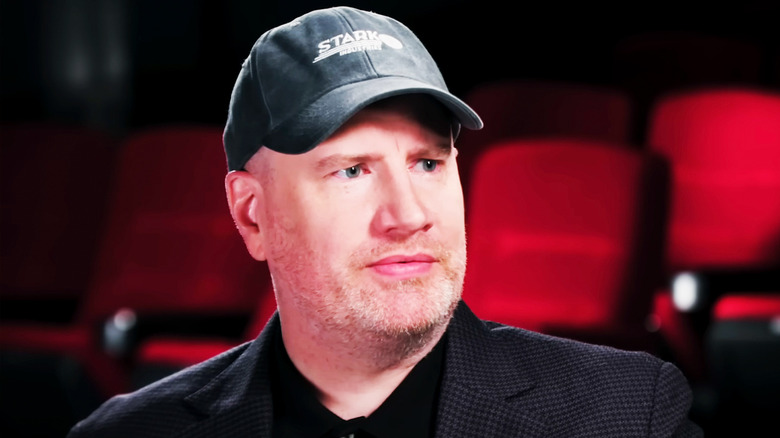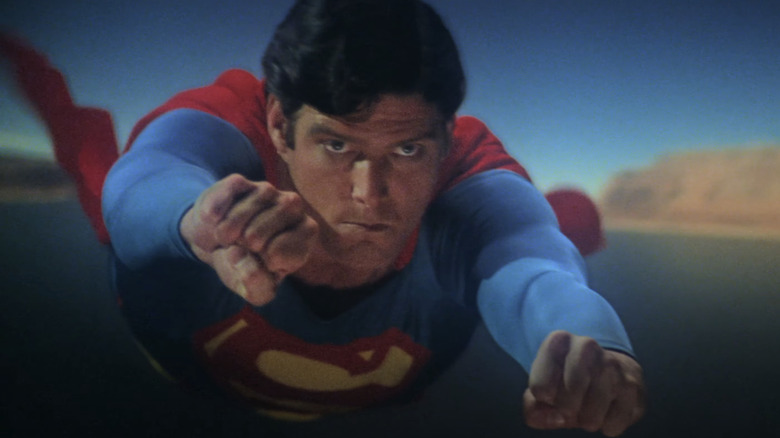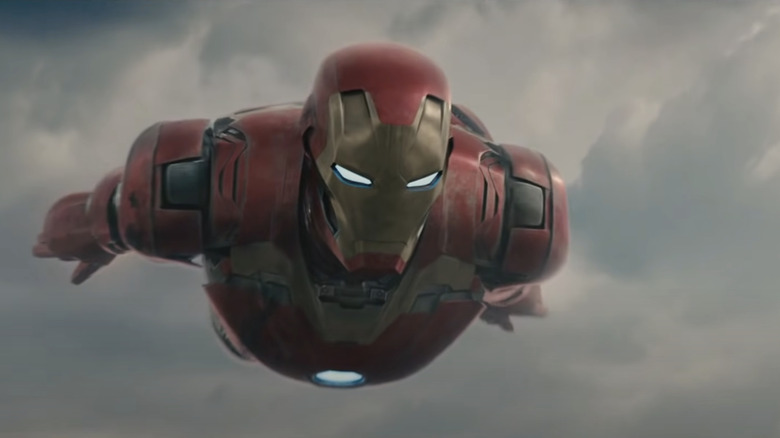The DC Movie Kevin Feige Watches Before Starting Work On Every MCU Film
These days, it's strange to think of Marvel struggling to outdo DC at the box office. But believe it or not, there was a time when the latter was the undisputed champ of superhero filmmaking. Director Richard Donner kicked off that winning streak with 1978's "Superman," the film that provided the blueprint for the modern blockbuster. Next, Tim Burton solidified DC's box office prowess with 1989's "Batman" — a film that made a heck of a lot of money at the box office and established the principles of modern blockbuster marketing.
Meanwhile, Marvel had this comparatively abject filmography to offer: 1986's "Howard the Duck," 1989's "The Punisher," and the direct-to-video "Captain America" in 1990. By the time DC and Warner Bros.' "Batman Forever" hit in 1995 and made $336 million globally (an impressive number for the time), it seemed DC would rule the superhero blockbuster space for a long time to come.
Of course, as we all know, things didn't quite work that way. Marvel would increasingly improve its cinematic offerings, beginning with 1998's "Blade" and continuing with Bryan Singer's "X-Men" movies and Sam Raimi's "Spider-Man" trilogy. But when "Iron Man" arrived in 2008 and kicked off the Marvel Cinematic Universe, DC was doomed to play runner-up to Marvel for the foreseeable future. Since then, recent struggles aside, Marvel Studios head Kevin Feige has basically dominated the box office when it comes to superhero movie-making. This is why it's interesting to learn that Feige himself credits a classic DC superhero film with providing the impetus for his MCU offerings.
Kevin Feige's love for Superman, the movie that started it all
In the book, "MCU: The Reign of Marvel Studios" authors Joanna Robinson, Dave Gonzales, and Gavin Edwards note that "in the age of Peak Superhero, DC Films wasn't as successful as Marvel Studios, but had created a distinctive style." That style, according to the authors, was "brutal, self-serious, and largely joyless" — a view seemingly shared by Richard Donner, who had some strong opinions about the DCEU's take on Superman. When Zack Snyder debuted his vision for Supes with 2013's "Man of Steel," the titular hero was shown brooding, snapping necks, and laying waste to the city he's supposedly sworn to protect. This was the exact opposite of Richard Donner's iteration of the character, who represented a shining paragon of morality and clean cut American values.
That, according to Kevin Feige, is the ideal approach for any superhero filmmaker to take. The Marvel Studios head told Robinson, Gonzales, and Edwards that he considers Donner's "Superman" to be "the archetype of the perfect superhero film origin story," before revealing, "We watch it before we make any one of our films."
That makes total sense, considering the way the MCU started. 2008's "Iron Man," 2011's "Thor," and 2012's "The Avengers," to name a few of the early MCU movies, maintained a light-hearted tone. They treated their hero protagonists with a palpable reverence that recalled Donner's summation of his approach to "Superman" as trying to "make a good movie about this beloved character and treat him with our greatest respect." Feige's own reverence for the 1978 superhero movie that kickstarted it all was seemingly infused into everything his studio was pumping out.
The downside of unrelenting reverence
To be sure, treating superheroes with barely concealed disdain is certainly not the greatest approach when crafting blockbuster films about those heroes. Zack Snyder's infamous rant about how people should "wake the f**k up" and realize that they're "living in a f*****g dream world" if they think superheroes are entirely pure remains so delightfully misguided to this day that it's worth pointing to yet again here. The whole point of superheroes and their stories is that they are dreams realized. They're fantasies, which is something that Richard Donner recognized and celebrated and that Kevin Feige tried to emulate with his movies.
But while Donner respected Superman as a character, he also respected the craft of filmmaking enough to painstakingly rework the initial "Superman" script to ensure the final product would stand on its own as a quality film. Alongside the sheer volume of "content" that Marvel Studios eventually started producing, it seems this failure to buttress respect for the characters with an appreciation for what makes a great film ultimately culminated in a situation where even some Marvel fans are wondering if it's time to let the MCU die.
Thankfully, 2024 offers Marvel an opportunity to fix the MCU before it's too late, and it seems the company might be on the right track as more grounded, street-level shows such as "Echo" and the upcoming "Daredevil: Born Again" begin appearing. They might not be as lighthearted as Donner's "Superman," but they represent the same ethos of treating their characters with enough respect to craft a world and a story worthy of these heroes' origins and principles. Let's hope it works!


